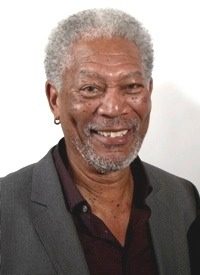
“Remember this day, boys,” the white soccer coach tells his players on the field as he watches the new President of South Africa Nelson Mandela pass by in Clint Eastwood’s latest film Invictus. “It’s the day our country went to the dogs.” The comment was meant to convey the racism of the time amidst the end of racial segregation in South Africa (called apartheid, separateness, in the Afrikaans language) during the administration of the nation’s first black president.
Invictus is nominally about the South African rugby team, the Springboks, a team that maintains apartheid-era colors of the nation and holds a strong cultural attachment with South African Dutch descendants called Afrikaners. The new President Nelson Mandela rallies the nation behind the team, despite the fact that the team’s colors remind black citizens of an era when apartheid kept them from equality with whites. Mandela attempts to promote ethnic harmony by trying to get fellow blacks to root for the mostly white Springboks. The underdog team rallies to make the Rugby World Cup, which South Africa hosted in 1995.
This highly entertaining sports film makes up in inspiration what it lacks in historical perspective, and for pure entertainment value it rises to the ranks of great sports underdog movies such as Rudy, Miracle, The Rookie and the recently released Blind Side. Morgan Freeman is spot-on as Nelson Mandela and Matt Damon puts in a respectable performance as Springbok Captain Francois Pienaar.
However, the movie lacks a genuine historical perspective. While Director Eastwood doesn’t gloss over Mandela’s failed marriage to the pretty, much younger — and far more radical — Winnie Mandela, the rest of the movie is nothing more than rank Mandela-hero worship. While Mandela did succeed in bringing an end to white-only rule in South Africa, a worthy accomplishment, he left the nation adrift, to be led by a succession of South African Communist Party leaders he had anointed.
Mandela’s immediate successor as president of South Africa was his deputy Thabo Mbeki, a lifelong South African Communist Party member. Mbeki was succeeded earlier this year by accused rapist Jacob Zuma, who is also a life-long member of the South African Communist Party and a one-time politburo member of the party. According to the London Times, Zuma had told members of the ruling African National Congress (ANC) Party before his election that “I owe nobody anything here. The only people I will consult beyond the election is the Communist party and the unions.”
The South African Communist Party is still part of the ANC “tripartite” political alliance, and is increasingly the dominant partner. Communist domination of the South African presidency continues despite the SACP’s tiny party numbers. “SACP deputy general secretary Jeremy Cronin said the party’s membership was the largest it had ever been in the country, at just over 96 000, almost double the size the party was four years ago,” the Johnannesburg Mail & Guardian explained on December 13. South Africa has a total population of 48 million, so SCAP members comprise about 0.2 percent of the population. But 100 percent of the last two presidents have been SACP members.
While Nelson Mandela was never an actual member of the Communist Party, he willingly coalesced with it and praised it constantly. On his first day after being released from prison, Mandela crowed:
I salute the South African Communist Party for its steady contribution to the struggle for democracy. You have survived 40 years of unrelenting persecution.
Yet Invictus gives the viewer no indication of SACP influence in Mandela’s ruling coalition. The hammer and sickle flags that are omnipresent at African National Congress events appeared nowhere in the movie.
Invictus also ignores the circumstances of Nelson Mandela’s incarceration on the Robben Island prison, even though it gratuitously shows the viewer his cell. The reader is left to intimate that Mandela was imprisoned for peaceful protest, like Mahatma Gandi. Instead, he and his communist co-conspirators admitted in their 1964 trial they had plotted sabotage and the murder of policemen. Mandela admitted in his trial that “I planned sabotage … as a result of a calm and sober assessment of the political situation that had arisen after many years of tyranny."
As a direct result of South Africa’s slide into socialism under the SACP, the South African economy has taken on a Zimbabwe-light slide into the abyss. The U.S. State Department explains that the South African “economy must achieve growth at a minimum of 6% to offset unemployment, which was estimated at 23.6% in June 2009. Inflation averaged 11.3 percent in 2008. Increasing food and fuel prices have pushed inflation above the upper end of the South African Reserve Bank’s (SARB’s) 3% to 6% inflation target range for the better part of 2007 and 2008.” The South African rand, once the most stable currency in the world for its gold backing, has averaged double digit inflation over the past 20 years.
South Africa did not go to the dogs on the day Nelson Mandela took office, and his presidency was not as bad as some white South Africans feared it might be. But Mandela’s presidency did lead to an economic slide in the hands of his communist successors that may yet take the nation to the dogs.
Photo of Morgan Freeman: AP Images



